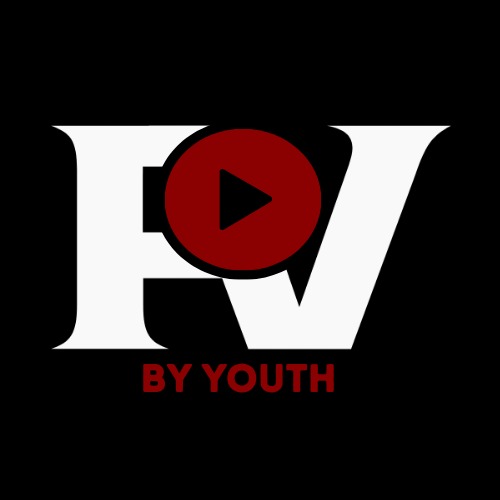“If the world is to have a future, it will be one not of ownership and possession, but of sharing. In short, only through sharing will there be a chance for a shared world to exist.”
Nature is the origin of everything. Every being’s connection to the earth is undeniable. We cannot achieve anything without respecting and utilizing what nature provides, for everything around us is a gift from nature. Even the materials used in space shuttles come from nature. Yet nature does not provide these things for our possession, because nothing is diminished from nature. Every part of nature will, in time, return to it. No matter how many millions of years it may take. Therefore, nature has no contribution to loss, whereas the human being is quite the opposite. The human, too impatient to understand the meaning of existence and non-existence, is driven by both its nature and its insecurity. This, in turn, leads to an increase in selfishness, as the human being fails to comprehend the value of existence. Consequently, they begin to believe that what they take from nature belongs to them. Over time, this leads to forgetting that their own existence is, in fact, a shared gift.
In my view, nature is the only role model we can draw inspiration from in every aspect of life. Particularly on this matter, because nature owns everything, while we are merely tenants. Therefore, humans should follow a philosophy and policy as close to nature as possible throughout their lives.
None of what we possess today will belong to us in the future. And when I say “future”, I am not referring to our own few years ahead. I speak of the future of nature. This future could span thousands, millions, or even billions of years. The reason for this unique time frame, exclusive to nature, is humanity. We do not permit a collective form of existence like nature does. We do not know how to pass on our existence from generation to generation because we are fixated on the brief period of our lives, leaving no lasting impact for the sake of humanity. However, when we observe the existence of nature, we see a system based on inheritance. Nature is a constantly evolving organism, and it does not try to prevent this change. No matter how much it changes, it remains the same.
Nature accomplishes this by embracing sharing. It does not hoard any part of its being nor shy away from distributing it. This ensures that no part of nature experiences a stagnant death. The only way something in this world can perish is through stagnation, and nature never allows this; it ensures that nothing is excluded from the cycle. For instance, a bird can easily reach flowers and spread their pollen, a cat can easily reach the bird and feed its offspring, an insect can easily reach the bird’s carcass and break it down into pieces that will return to the earth. Interestingly, the flowers to which the bird once spread pollen can easily reach the soil where the bird’s body decomposes and use the nutrients as fertilizer. The only organism that has created a system against this is humanity. Humans are the only beings that try to separate themselves from nature’s collective existence. They constantly drive themselves toward a stagnant death because they fear their existence will not be carried forward by the next generation. Humans fear any cyclical system.
As a result, they also fear sharing. Now, if we approach this from the perspective of nature, we can conclude that humans should share as much as nature does — everything. From this viewpoint, a societal model naturally comes to mind: a utopia. A society without state borders, without issues of private property and money, focused on societal sufficiency. This vision aligns with Karl Marx’s communism.
This form of governance is humanity’s most complex system. It is far from state coercion. It is far from selfishness and the rule of a single individual. It is a state structure focused not on the individual, but on the collective. Every other state structure sells a fantasy. The thought that one can become Big Brother is deeply ingrained in humanity, and many would prefer such a system over one where all are equals. Marx’s communism, on the other hand, aims to show a harsh but manageable truth to all: the truth that no one can be superior to anyone else. The truth that the land I will inherit in fifty years is no different from yours. Thomas Hobbes’ famous saying, “Man is wolf to man,” highlights this. Despite the lack of difference between one person and another, it is only humans who fight each other. Over time, this denies the possibility of a sharing society and makes Marxist communism impossible, because humanity offers the chance to surpass others, yet the truth is otherwise.
So, what should we do, “if the world is to have a future?” We must forget our humanity. No one should be anyone else’s enemy, for those who will live the longest are those who leave the most behind, not those who take the most. We must return to nature, but we must do so through a humane means: through ultimate and societal communism. The only chance for the world to have a future lies in this utopian dream. But we must follow the path of pure Marxist communism, not the Maoist or Leninist versions that have evolved into fascist regimes. We must first establish a societal model similar to Thomas More’s utopia, one based on justice and equality, where there is no place for superiority or competition. Once such a society is formed, the whole world’s population must accept, collectively and without discussion, that individuals must cease to exist as individuals. There should be no state borders, no concerns about money or trade. As Thomas More said, every person has a role, and everyone must find theirs. Once this realization occurs, every part of society will recognize that it cannot exist without the other. Once such a society is formed, it will be very difficult for any individual to resist sharing. And people will begin to share, starting with their ideas. As ideas are shared, this utopia will become sustainable.
What if we don’t? Then, humanity will continue its cycle of realizing and forgetting. Revolutions and counter-revolutions will unfold, and the shared nature of our world will be completely forgotten, until the time comes for it to return to its rightful owner. By then, there will be nothing left. No trace. If you allow for the concept of a “period,” you will have accepted that being the best in your time will hold no meaning in the future. Periods, lifetimes, possessions, and the competitive human ego — everything that prevents a sharing society — will ultimately prove to be meaningless. Only when these truths are revealed can the world have a future. But a world that is not shared will inevitably be doomed to stagnant death.


